Table of Contents
As the exam date for the Rajasthan Eligibility Examination for Teachers (REET) 2025 approaches, candidates must get serious with their preparations to make their mark in the exam. Candidates preparing for this highly competitive exam must focus on the Child Development and Pedagogy (CDP) section, as it can be the deciding factor in the assessment of the final results. The CDP assesses the candidates’ teaching aptitude with topics such as child psychology, learning theories, and teaching methodologies.
To assist in effective preparation, we are providing the REET CDP Questions PDF, which contains a comprehensive set of questions with solutions. Practicing these questions will enhance candidates’ conceptual clarity and problem-solving abilities for both Level 1 and Level 2 exams.
REET CDP Questions and Answers
REET 2025 CDP: Overview
CDP is a vital subject in the REET 2025 exam, designed to assess candidates’ understanding of child psychology and teaching strategies. A thorough awareness of concepts like Piaget’s Theory, Vygotsky’s Sociocultural Theory, Kohlberg’s Moral Development Theory, and Inclusive Education is essential for scoring well in this section. Below is the detailed structure:
| REET 2025 CDP: Overview | ||
| Aspect | Level 1 | Level 2 |
| Total Marks | 30 Marks | 30 Marks |
| Total Questions | 30 Questions | 30 Questions |
| Marking Scheme | +1 for each correct answer, No negative marking | +1 for each correct answer, No negative marking |
| Difficulty Level | As per the 5th standard syllabus | As per the 8th standard syllabus |
| Key Topics | Learning Theories, Child Psychology, Pedagogy & Inclusive Education | Advanced Pedagogical Theories, Child Psychology, and Teaching-Learning Strategies |
REET CDP Questions
To clear the REET 2025 exam, candidates should practice various Child Development and Pedagogy questions that cover core topics such as cognitive and moral development, intelligence theories, and teaching methodologies. The following sample questions will help candidates evaluate their preparedness for the exam:
Q1. Assertion (A) : In a progressive classroom the teacher should be diadactic and keep the children in control by maintaining ‘pin-drop’ silence.
Reason (R) : Children learn only when teachers exercise total control over them.
Choose the correct option.
(a) Both (A) and (R) are true and (R) is the correct explanation of (A)
(b) Both (A) and (R) are true but (R) is not the correct explanation of (A)
(c) (A) is true but (R) is false
(d) Both (A) and (R) are false
Q2. Individuals with ____________ are able to make connections based on their prior knowledge and are drawn to categorization, patterning, and relationships between ideas.
(a) Logico-mathematical intelligence
(b) Bodily-kinaesthetic intelligence
(c) Interpersonal intelligence
(d) Linguistic intelligence
Q3. A teacher’s remark in a co-education class to boys, “Be brave and don’t behave weakly like girls” would encourage :
(a) gender equity
(b) gender stereotyping
(c) gender role flexibility
(d) gender equality
Q4. Which of the following are key characteristics of Continuous and Comprehensive Evaluation ?
(i) It’s primary objective is to segregate and label childrens.
(ii) It provides opportunities for teachers to reflect on their pedagogy.
(iii) It incorporates assessment as a part of learning.
(iv) It helps to promote learning by inducing fear and anxiety.
(a) (i) and (ii)
(b) (ii), (iii) and (iv)
(c) (ii) and (iii)
(d) (i), (ii), (iii) and (iv)
Q5. Which of the following questions promotes critical thinking rather than mere recall of
information?
(a) In which year was the last census held?
(b) Where was Mahatma Gandhi born?
(c) Who was the first President of India?
(d) How can democratic ideals be promoted in a society?
Q6. For the successful inclusion of students belonging to disadvantaged groups the teachers
should :
(a) include aspects of their culture through various activities
(b) discourage them from taking part in cultural activities and ask them to focus on studies
(c) encourage them to take part in cultural activities but not on studies
(d) gently ask the parents to enroll children in home tuitions
Q7. A key pedagogical strategy to ensure inclusive education is :
(a) Collaboration
(b) Segregation
(c) Negative discrimination
(d) Labelling
Q8. A teacher should support inclusion of students belonging to disadvantaged groups by:
(a) creating a classroom ethos where differences are accepted and every child is valued
(b) identifying children’s academic abilities and always group children of same ability together
(c) segregation of children groups based on their caste
(d) promoting them to reproduce textbook knowledge even if it is meaningless to them
Q9. A child’s intelligence test score shows that she is above average, she is regular and active in class. Her mathematics grades and writing skill is good but when given the task of reading loudly her performance is poor, the child is likely to have :
(a) Dysgraphia
(b) Dyscalculia
(c) Dyslexia
(d) Autism
Q10. What is creativity ?
(a) Ability to repetitively perform an action without being bored.
(b) Ability to rote memorize long passages.
(c) Ability to think divergently.
(d) Ability to copy and imitate others as it is.
Solutions
S1. Ans.(d)
S2. Ans.(a)
S3. Ans.(b)
S4. Ans.(c)
S5. Ans.(d)
S6. Ans.(a)
S7. Ans.(a)
S8. Ans.(a)
S9. Ans.(c)
S10. Ans.(c)
Download Top 200 REET CDP Questions & Answers PDF
To assist candidates in their preparation for the REET 2025 examination, we have meticulously curated three sets of Child Development and Pedagogy (CDP) questions. These sets include 50 important questions for Level 1 specifically and an additional 100 questions covering key topics. Practising these questions will help candidates strengthen their foundational knowledge, improve accuracy, and enhance problem-solving skills. Download the REET CDP Questions & Answers PDF from the link below to boost your preparation and excel in the upcoming exam.
| Download REET CDP Questions & Answers PDF | |
| REET CDP Questions & Answers Sets | Download Links |
| REET CDP Questions & Answers Set 1 (For Level 1) | Download PDF |
| REET CDP Questions & Answers Set 2 (For Level 2) | Download PDF |
| REET CDP Questions & Answers Set 3 (For both) | Download PDF |
| Related Articles | |
| REET Eligibility Criteria | REET Answer Key 2025 |
| REET Previous Year Question Paper | REET Selection Process |
| REET Validity | REET Cut Off Marks |
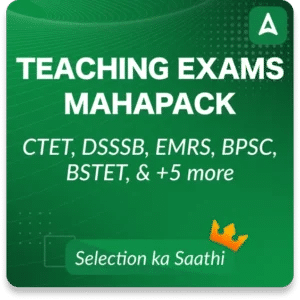 |
|
Check: KTET Result 2025 (Out)

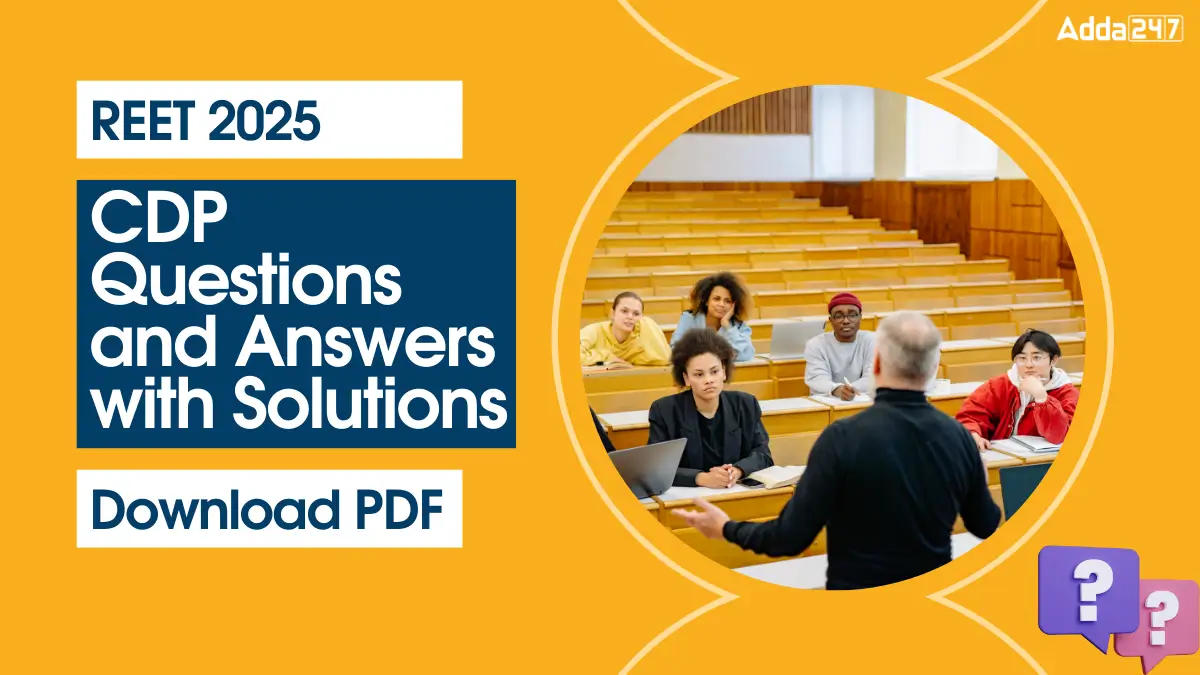

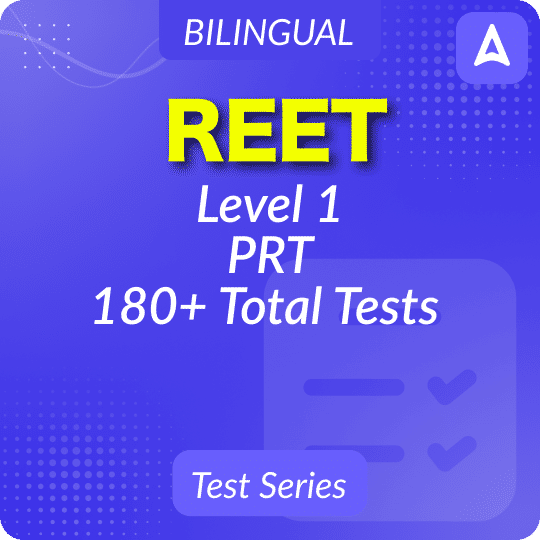
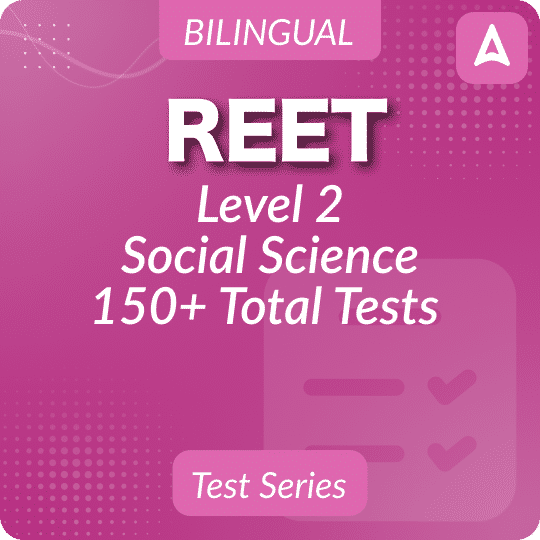
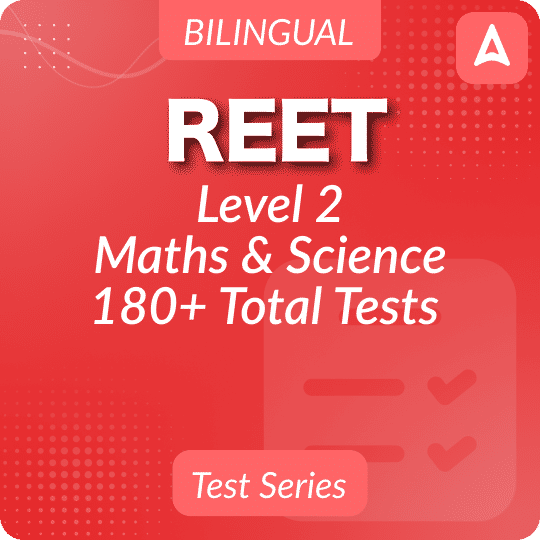
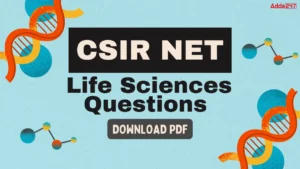 CSIR NET Life Sciences Questions with De...
CSIR NET Life Sciences Questions with De...
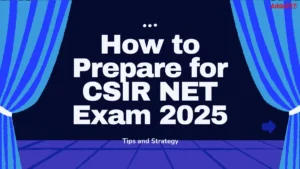 How to Prepare for CSIR NET Exam 2025, E...
How to Prepare for CSIR NET Exam 2025, E...
 CSIR NET Subject List with Code Official...
CSIR NET Subject List with Code Official...














